Exploring student thinking, problem solving and collaboration in iPad-supported learning environments
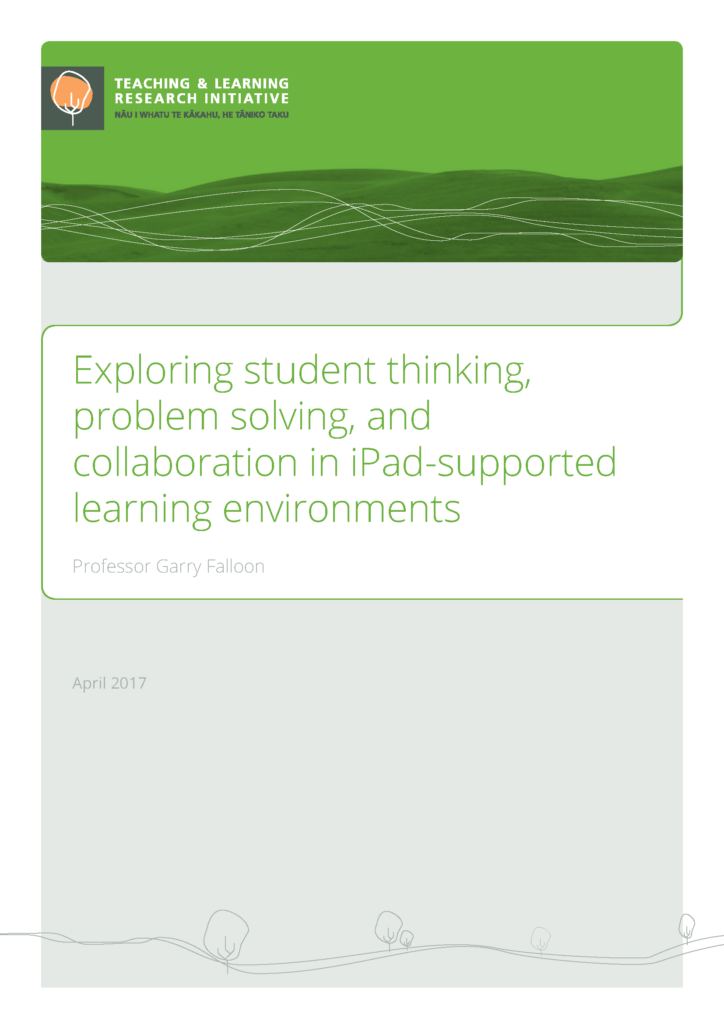
Introduction Despite successive waves of technological innovation being rapidly adopted by schools, teaching methods and curriculum designs have been slow to evolve in response to the affordances offered by an increasing array of digital devices (Cuban, 2017). This phenomenon is not new, with articles dating back to the early 1980s when digital devices were beginning […]
Enhancing teaching and learning of primary mathematics through the use of apps
1. Introduction How might enhancing teachers’ technological, pedagogical, and content knowledge (TPACK) influence the teaching and learning of primary school mathematics though using apps? The focus of this research project was on teaching and learning primary mathematics through the use of apps with mobile digital devices. Specifically, the project aimed to use the lens of […]
The Apiscope Buzz: A mixed methods action research project investigating STEM to STEAM using the Apiscope as a tool for differentiated teaching and learning
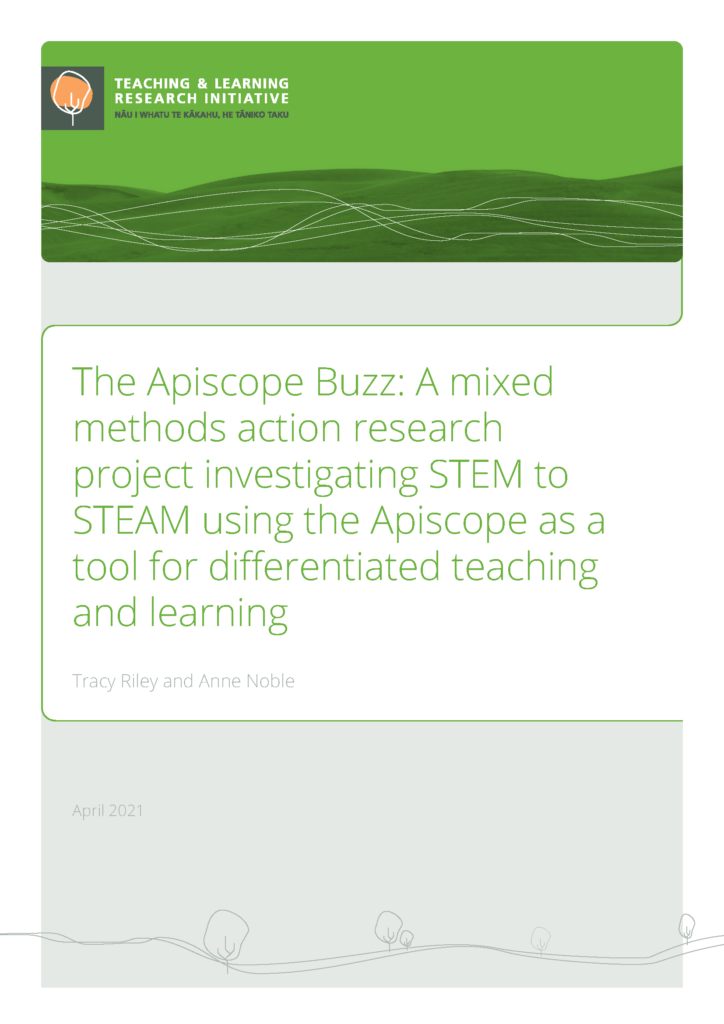
Introduction This Teaching and Learning Research Initiative (TLRI) project was a 2-year exploratory study focusing on differentiating the curriculum in response to individual learner differences. The project was designed to explore learning and teaching of differentiated scientific content through observational processes and the expression of that learning through the creative arts. This exploration was undertaken […]
The Relationship between Participation in Singing Programmes and Student Well-Being in a Christchurch Primary School
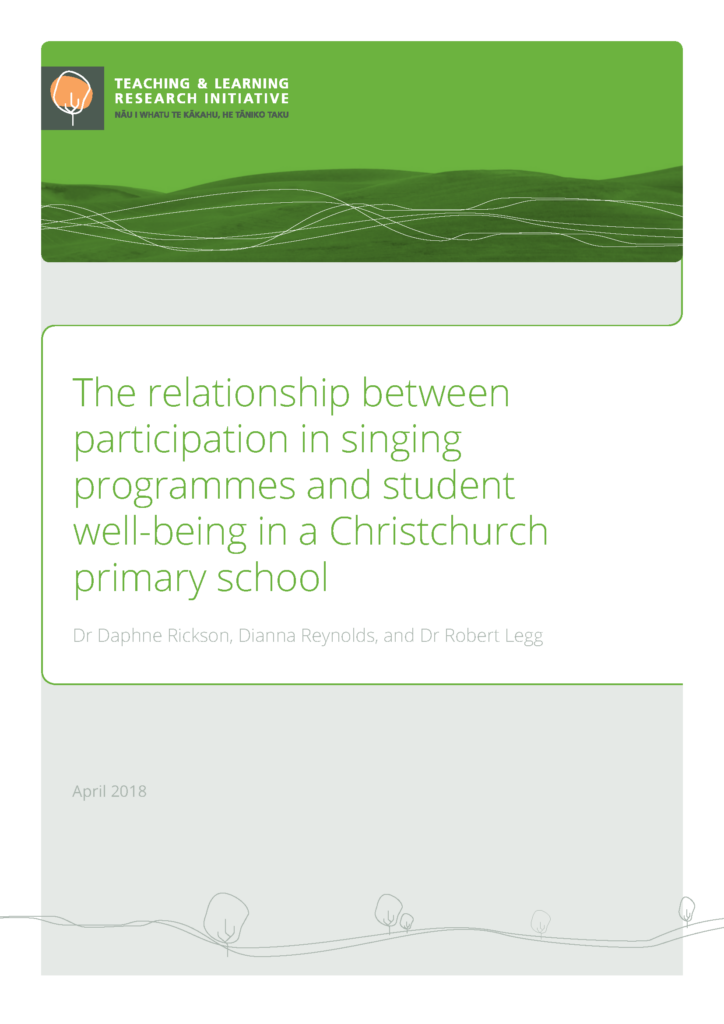
Introduction Background Waitākiri School in Christchurch was formed in 2014 as part of the larger restructuring of Christchurch schools following the 2010–2011 earthquakes. The new school motto at the time, ‘creating a new community school together’, reflects the significant ongoing psychological and environmental challenges that learners, staff, and families have been facing, including ongoing effects […]
Supporting teachers and learners of programming by understanding feedback on syntax, semantics and style
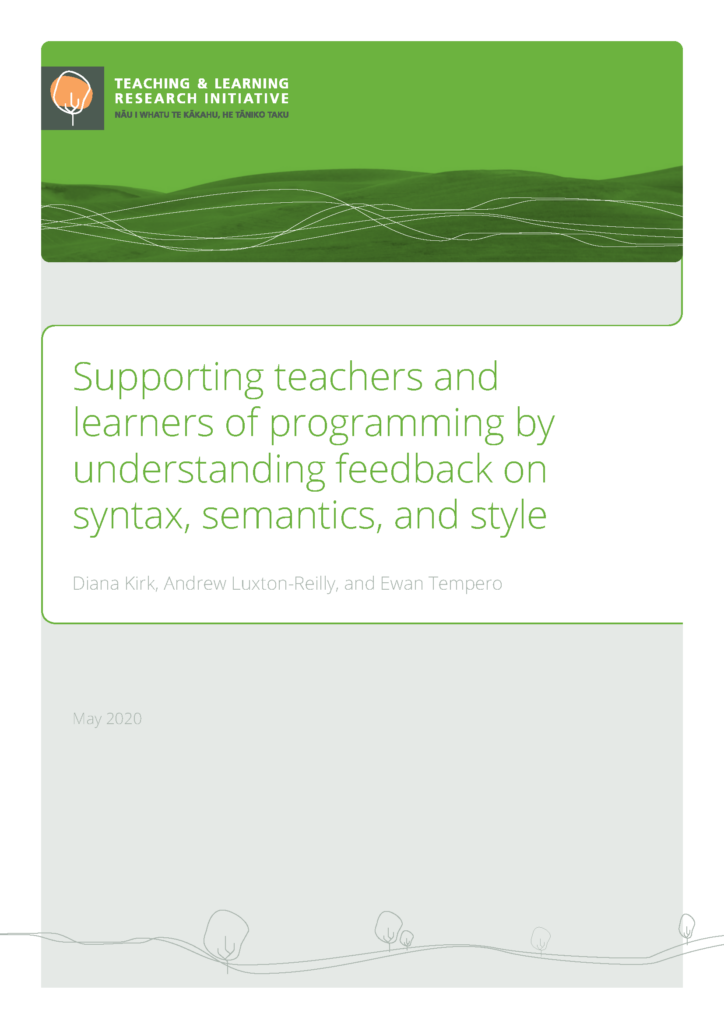
Introduction New Zealand has a shortage of skilled workers in information technology (IT). Skills relating to computer programming (e.g., software engineer, applications programmer, software tester, web developer) all appear on the 2019 Long Term Skill Shortage List published by Immigration New Zealand (Immigration New Zealand, 2019). In 2020, Immigration New Zealand reports a continued lack […]
Generating positive outcomes by Year 5 to 8 priority learners in writing: An inquiry into effective teacher practice
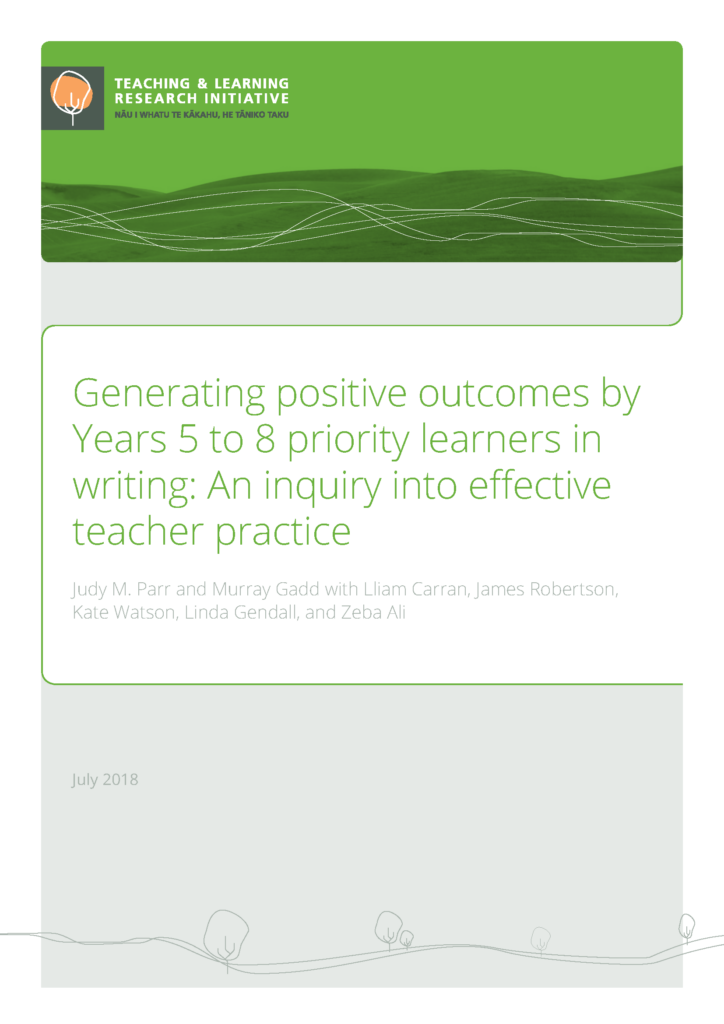
1. Writing: The issue to be addressed Writing is a demanding, multidimensional process that is, cognitively and socially, highly complex. Success in writing is vital to success in education and in the workforce (Graham, Capizzi, Harris, Hebert, & Morphy, 2014). Writing is increasingly used to demonstrate learning through schooling and has the potential to contribute […]
Enhancing the intercultural capability of students of additional languages in New Zealand’s intermediate schools
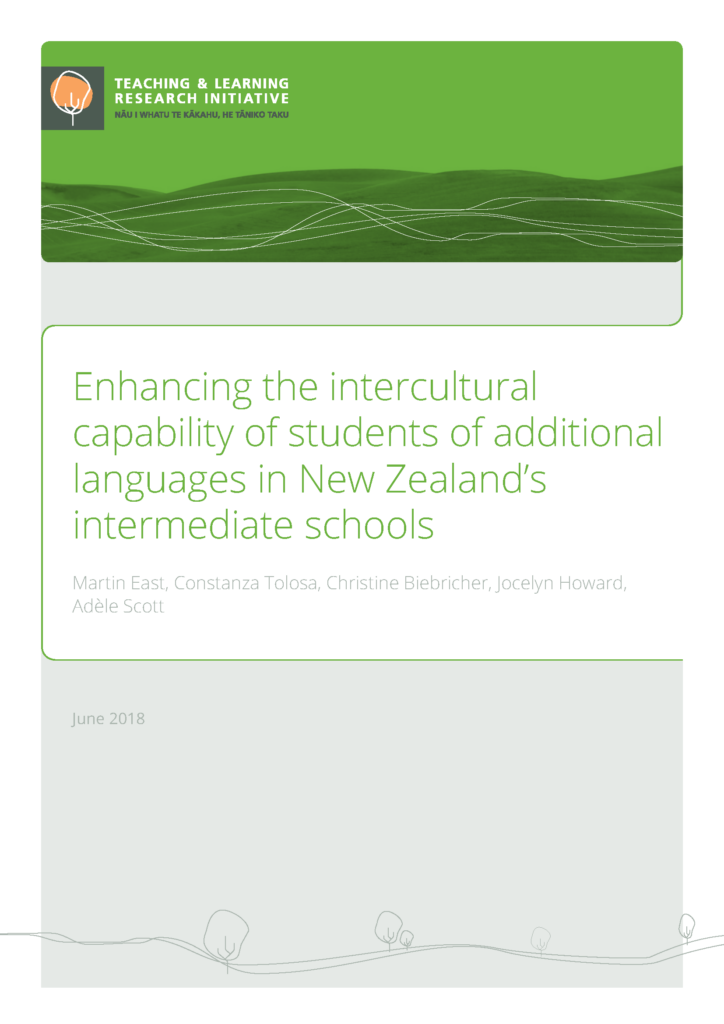
Introduction The purpose of this TLRI-funded study was to investigate how five Year 7/8 teachers of additional languages in four primary/intermediate schools in New Zealand supported their students to develop their intercultural capability in the context of learning a language additional to the language of instruction. The teachers taught a range of languages (Chinese, Japanese, […]
An architecture of ownership
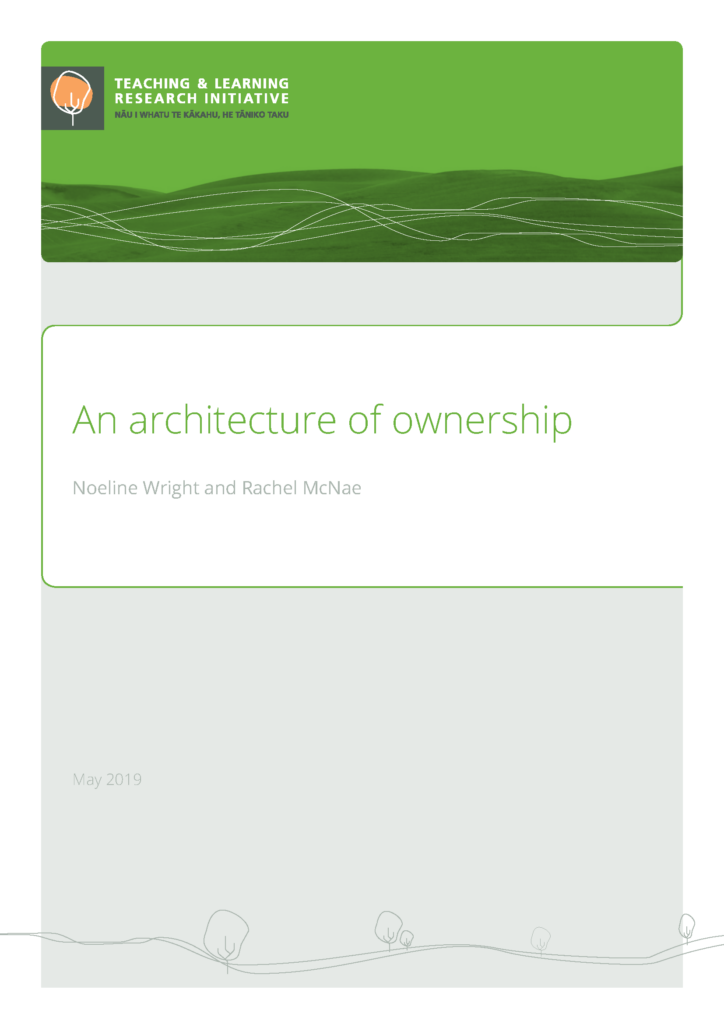
Introduction This project set out to explore how completely new schools, occupying completely new classroom spaces, create themselves as schools. At its inception, a new school has only its buildings; everything else must be developed. In particular, the school must develop its vision for learners, and how this is reflected through school culture, routines, values, […]
Citizen scientists in the classroom: Investigating the role of online citizen science in primary school science education
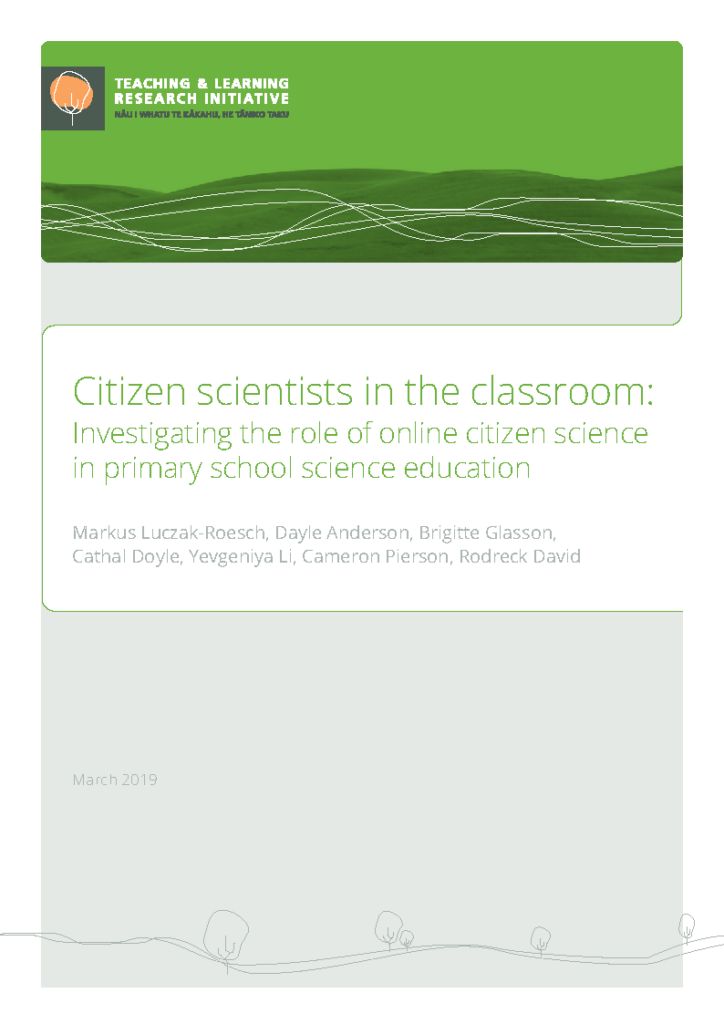
1. Introduction This project aimed to assess the impact of online citizen science (OCS) participation on the science education of primary school children in New Zealand. Four exploratory cases were used to examine the nature and impact of embedding OCS projects that use web-based online tools within primary classroom environments. Findings provide key insights into […]
Contributing to change? Responding to future-focused issues through education outside the classroom
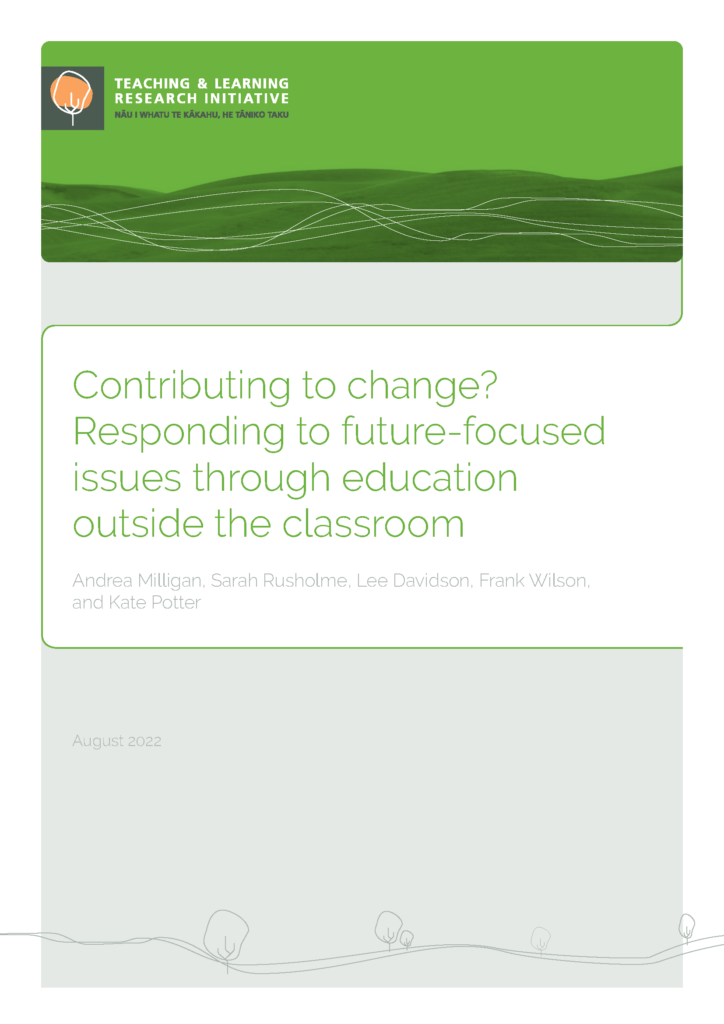
Introduction How can educational experiences in public spaces such as museums, libraries, and eco-sanctuaries support learners to address pressing social, cultural, and ecological issues? Working with four primary teachers and two secondary teachers, their ākonga (Years 3–10), and educators from 10 providers of learning experiences outside the classroom in the Wellington region, this project investigated […]
Co-constructing a culturally and linguistically sustaining, Te Tiriti-based Ako framework for socio-emotional wellbeing in education: A collaborative project among teachers, whānau, hapū and iwi to enable a holistic approach to education
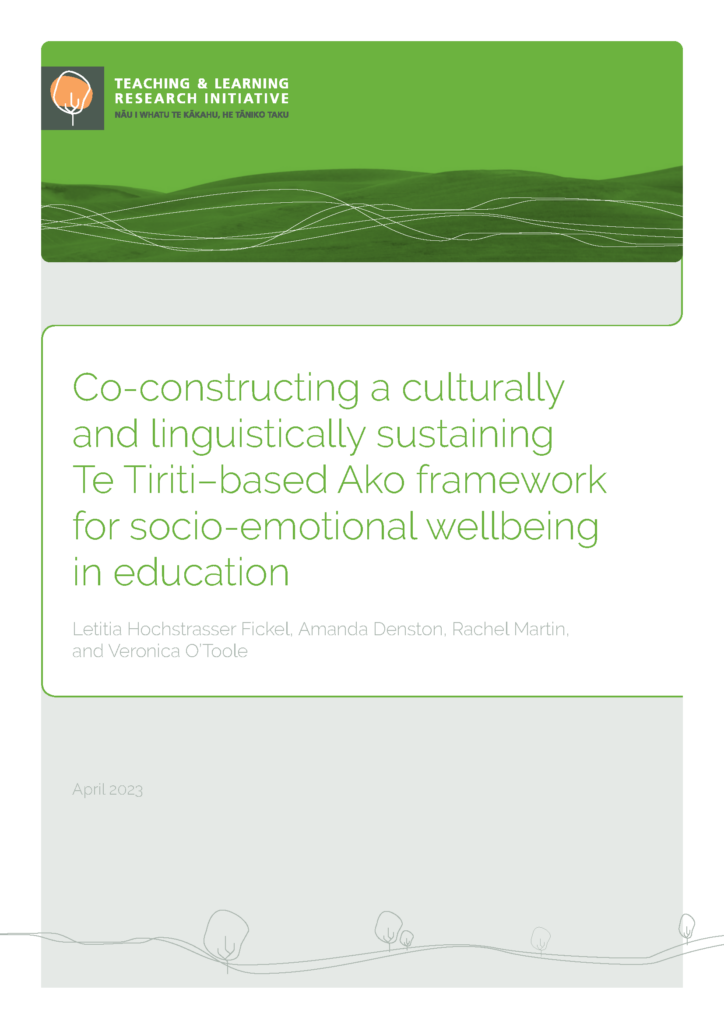
Introduction Schools have a role to play in improving youth social emotional wellbeing (SEW) by supporting their development of social-emotional knowledge, skills, and capacities through social emotional learning (SEL). However, schools in Aotearoa New Zealand vary widely when responding to and promoting tamariki wellbeing (Education Review Office, 2015a, 2015b). More successful schools show a comprehensive […]
Māku anō e hanga, i toku nei whare – I will build my own house
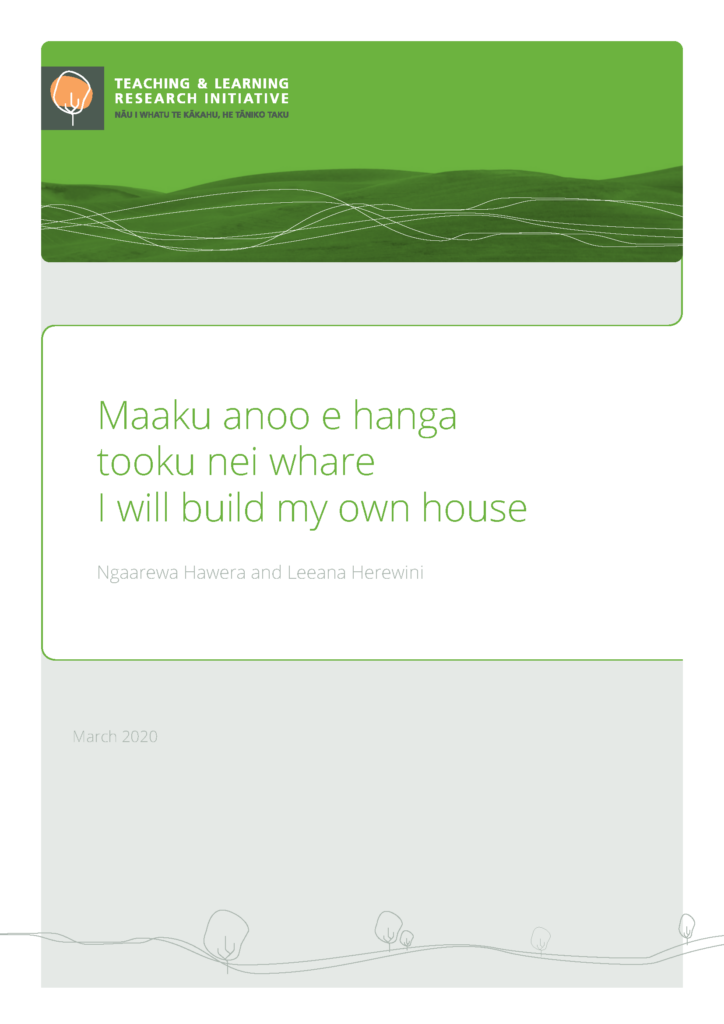
INTRODUCTION: The context of the project The proponents of Modern Learning Environments (MLE) or Innovative Learning Environments (ILE) are from largely non-indigenous backgrounds. In Aotearoa New Zealand, research about learning mathematics in an MLE is limited and focuses almost exclusively on English-Medium (EM) settings (Bisset, 2014; Murphy, 2016; Osborne, 2013). In contrast, this research sought […]
Zooming out and zooming in on student data: Developing teacher data literacy to enhance teaching and learning
Introduction While teachers and schools have access to an increasing range of data, a challenge is using these data to support student learning outcomes. Over the past decade, expectations for teacher use of data as a basis for instructional decision making have increased (Pierce & Chick, 2011; Schildkamp & Poortman, 2015). Teacher assessment literacy, data-based/data-informed […]
The Relationship Between English Language and Mathematics Learning for Non-native Speakers
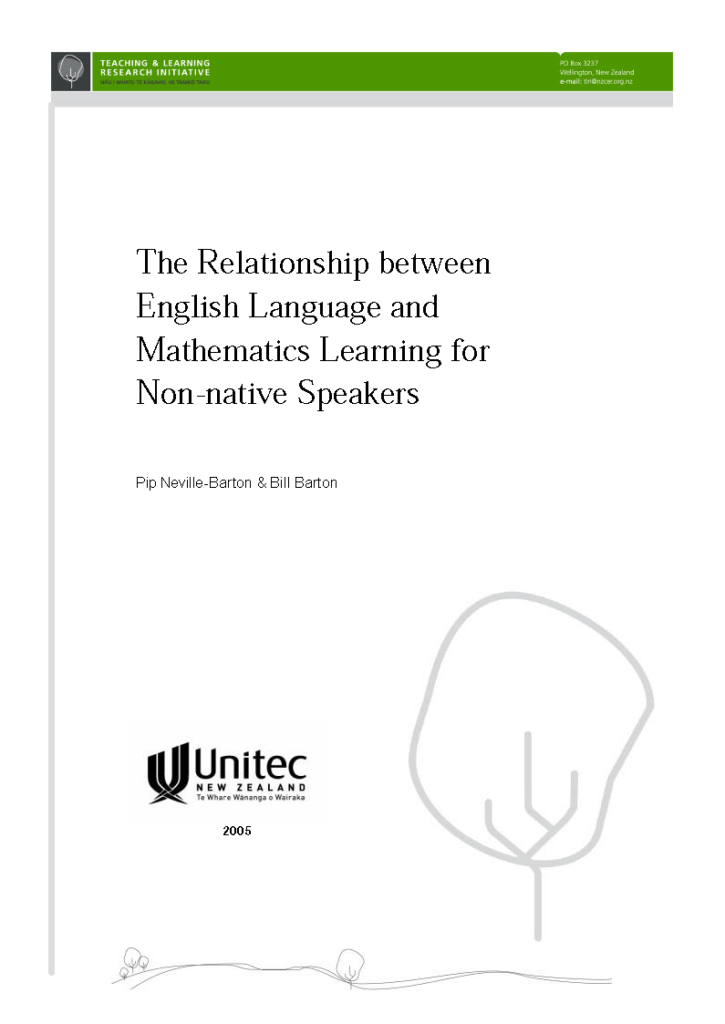
1. Introduction In recent years, New Zealand secondary schools and tertiary institutions have enrolled increasing numbers of students for whom English is an additional language (EAL students). There is, therefore, growing interest in the language requirements for successful study and in programmes that will assist these students. It is a common perception that students from […]
Narratives of beginning Māori teachers: The forces that shape the first year of teaching
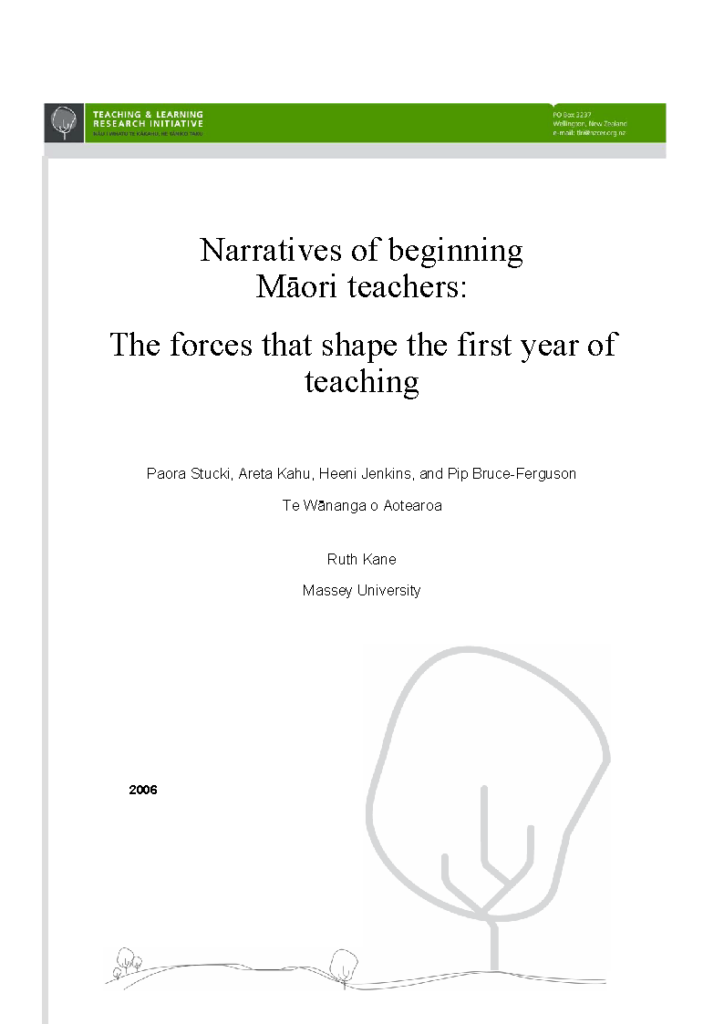
He Mihi Koia tënei ko te mihi i te tuatahi ki te hunga nä rätou i para te huarahi e whai nei mätou, arä, ko te tini kua ngaro atu i te tirohanga kanohi. Ko te tumanako rä, e tika ana tä mätou whai i te huarahi i whakamomori rä koutou ki te hanga hei […]
Numeracy Practices and Change
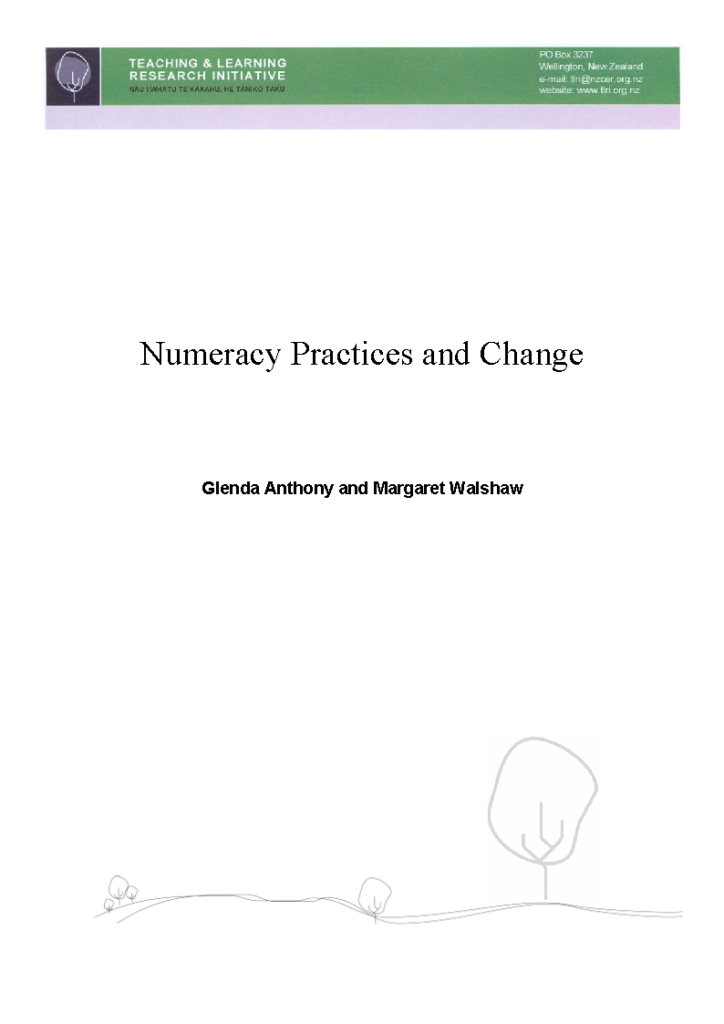
1. Aims, objectives, and research questions Overview of project Late in 2003 the Teaching and Learning Research Initiative granted funding to Massey University’s Department of Technology, Science, and Mathematics for a two-year study of numeracy practices in New Zealand schools. Central issues to be addressed were those of equity, proficiency, and sustainable practice in relation […]
Mathematical relationships and practices: A view into Year 9 mathematics classrooms.
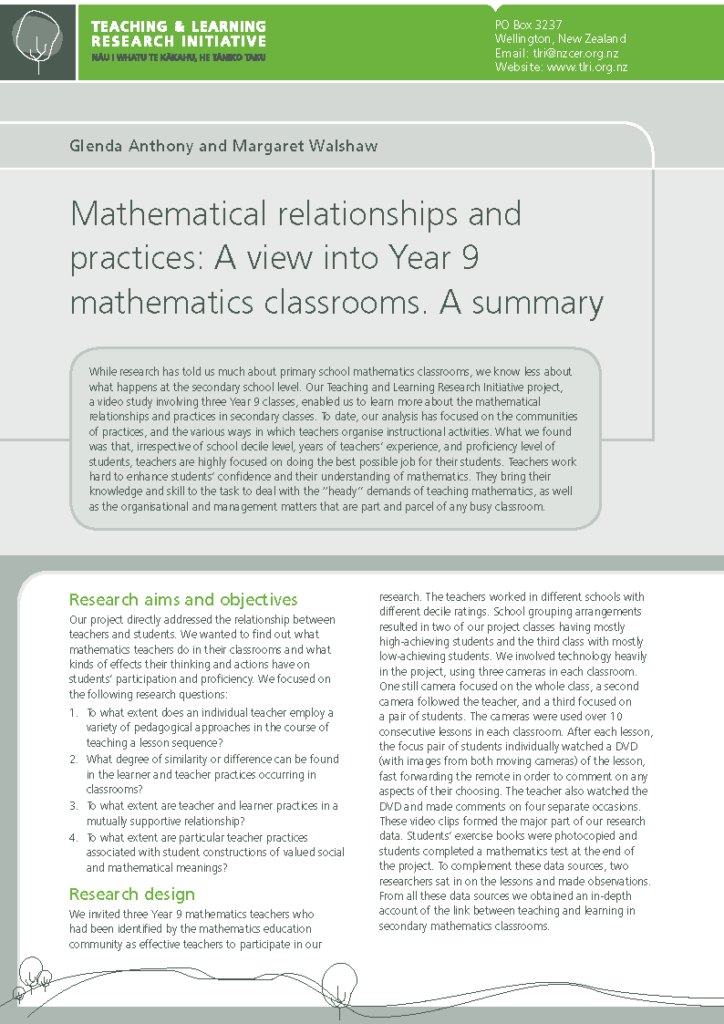
The pdf version of this document is formatted into a A4 pamphlet style While research has told us much about primary school mathematics classrooms, we know less about what happens at the secondary school level. Our Teaching and Learning Research Initiative project, a video study involving three Year 9 classes, enabled us to learn more […]
Observing assessment for learning (AfL) in action: Piloting an observation schedule to inform teacher assessment learning and research
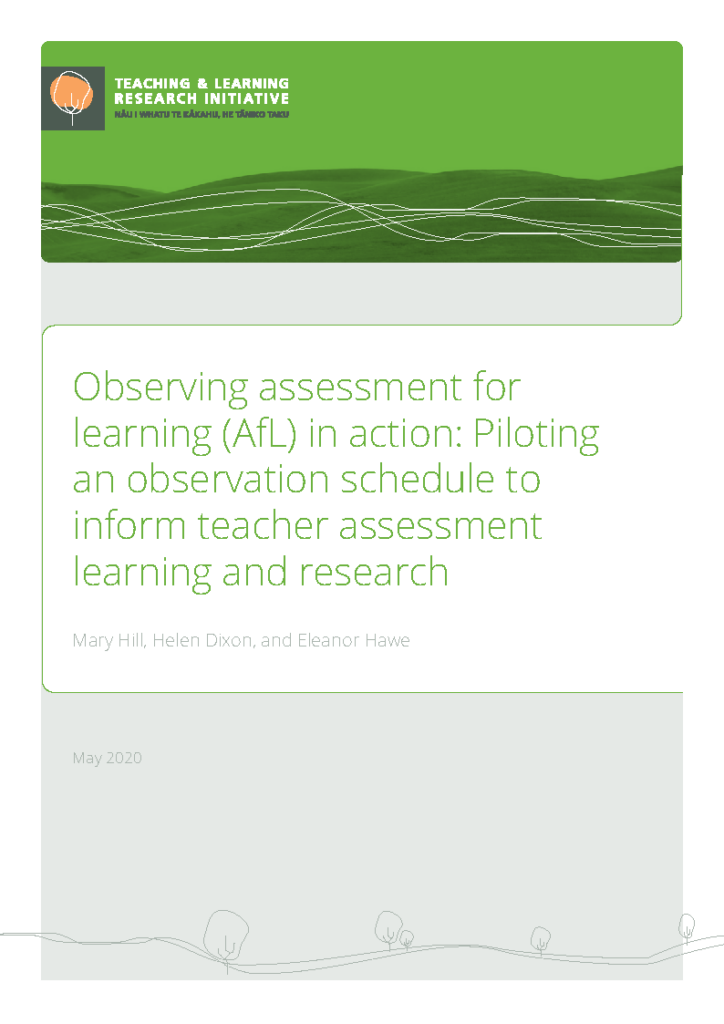
1. Introduction In New Zealand we lack valid and reliable evidence-based schedules with which to observe teachers’ assessment for learning (AfL) practices. To date, classroom assessment observation schedules have mainly been derived theoretically, used in developing countries with conditions different from New Zealand classrooms (Kanjee & Hopfenbeck, personal communications), or restricted to particular curriculum areas […]
Experiences and reflections of teachers on the use of mixed reality technologies to foster cross-curricular learning opportunities
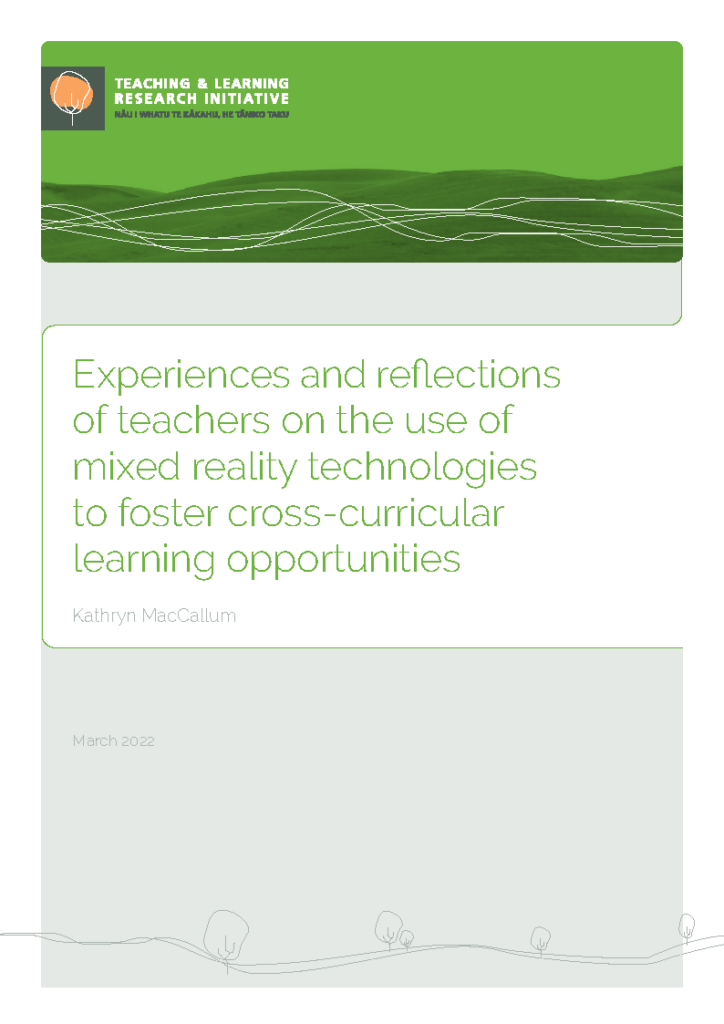
1. Introduction This study aimed to explore how the purposeful integration of new technology, specifically mixed reality (MR), can support learning across the curriculum through the development of digital artefacts. The study focused on exploring the experiences of teachers at two high schools who were supported by digital technologies teachers and the lead researcher to […]
Leading effective goal-setting to improve school outcomes
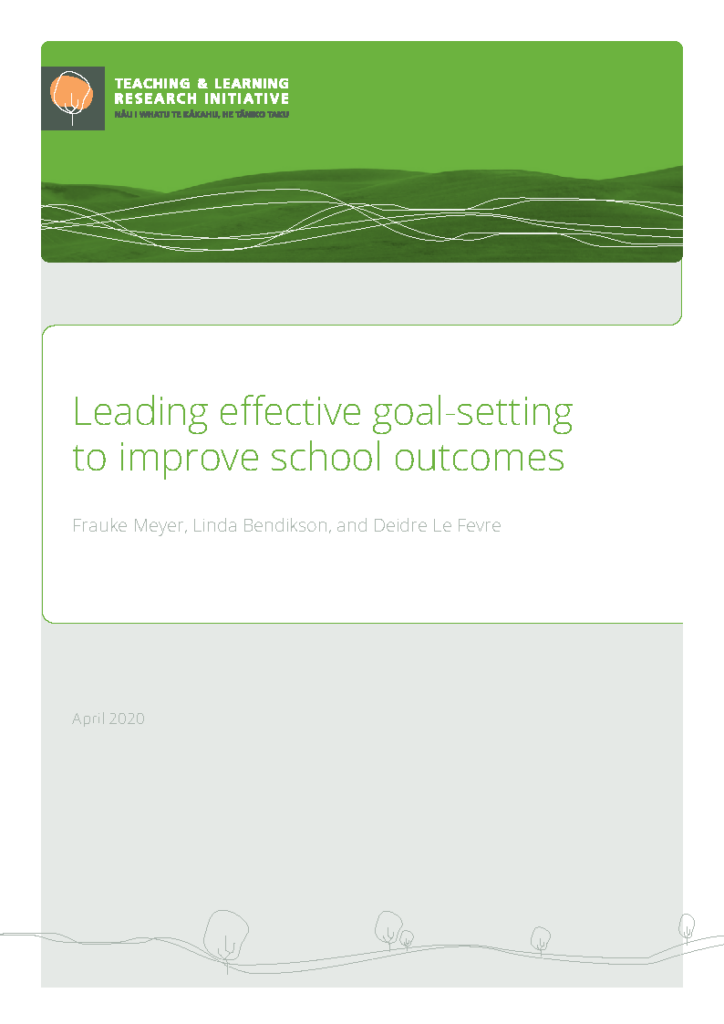
Introduction Our study highlights how principal leadership of goal-directed practices impacts outcomes. Over 2 years, three academics partnered with three principals and a small “project team” comprising one or more teachers, and one or more middle or senior leaders. All principals were relatively new to their schools; one had been there 2 years, and the […]
